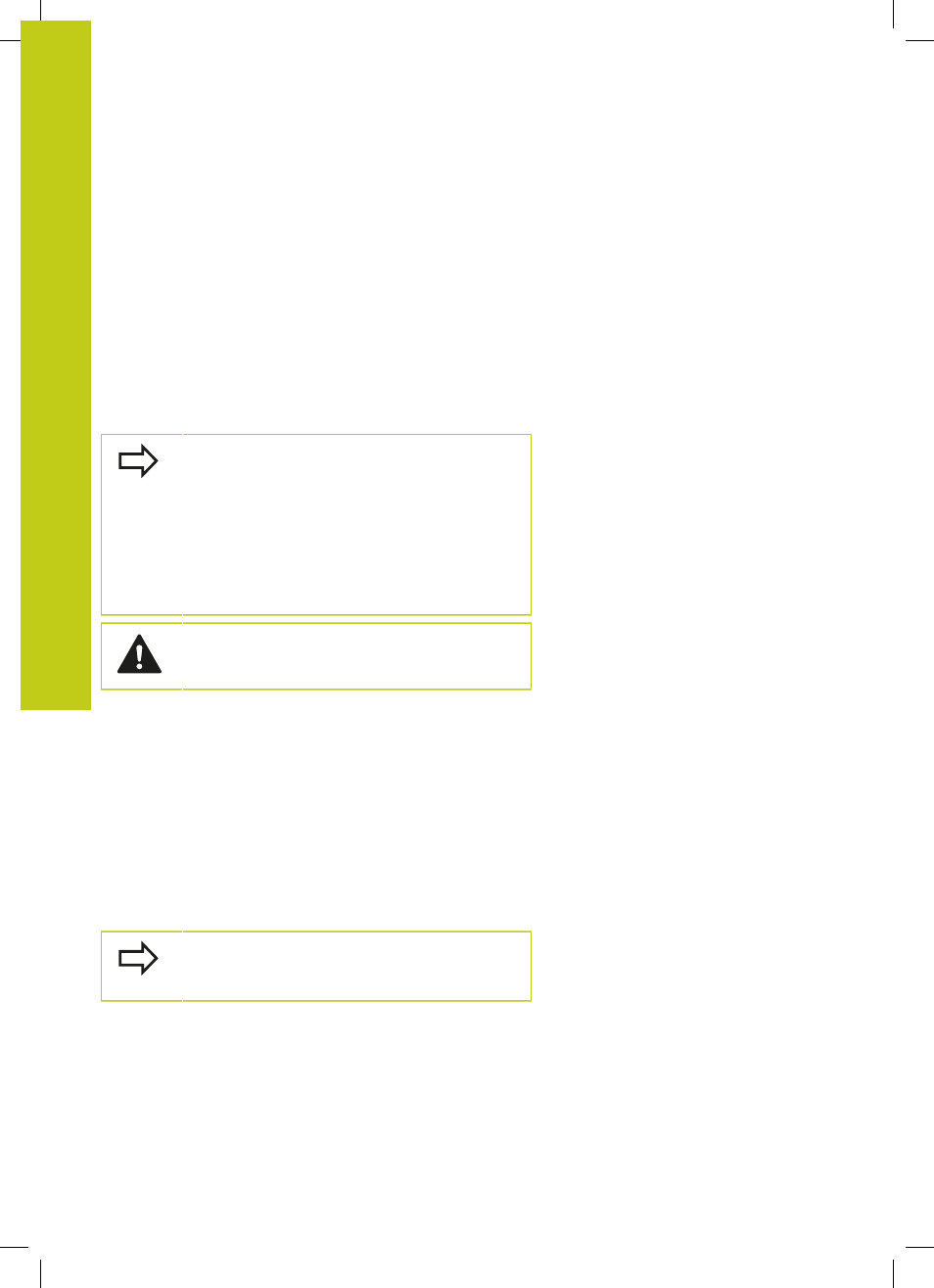Collision monitoring in the manual operating modes – HEIDENHAIN TNC 640 (34059x-05) User Manual
Page 396

Programming: Special functions
11.2
Dynamic Collision Monitoring (Option #40)
11
396
TNC 640 | User's Manual
HEIDENHAIN Conversational Programming | 1/2015
Collision monitoring in the manual operating modes
In the
Manual operation and Electronic handwheel operating
modes, the TNC stops a motion if two objects monitored for
collision approach each other within a distance of less than 2 mm.
In this case, the TNC displays an error message naming the two
objects causing collision.
Before the collision warning, the TNC dynamically reduces the feed
of the movements to ensure that the axes stop in good time before
a collision.
If you have selected a screen layout in which collision objects are
on the right, then the TNC additionally marks the colliding objects
in red.
Once a collision warning is displayed, machine
motions via the direction keys or handwheel are
possible only if the motion increases the distance
between the collision objects.
Motions that reduce the distance or leave it
unchanged are not allowed as long as collision
monitoring is active.
To deactivate collision monitoring, see "Activating and
deactivating collision monitoring", page 398.
Note the generally valid constraints, see "Function",
page 393
Collision monitoring in the Program Run operating
modes
In the
Positioning with manl.data input, Program run single
block and Program run, full sequence operating modes, the
TNC stops the program run before the block in which two objects
monitored for collision would approach each other within a distance
of less than 5 mm. In this case, the TNC displays an error message
naming the two objects causing collision.
If you have selected a screen layout in which the collision objects
are on the right, then the TNC additionally marks the colliding
objects in red.
The TNC monitors motions blockwise. The TNC
interrupts the program run with a collision warning in
the block that would cause a collision.